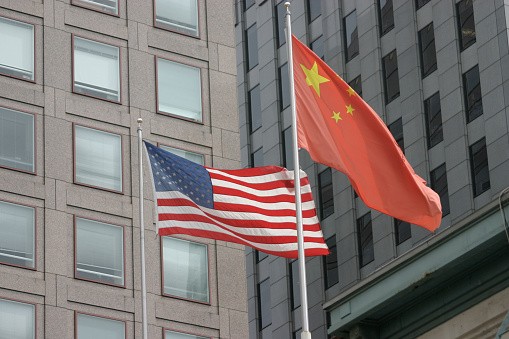Following U.S. President-elect Donald Trump's win in the recently concluded U.S. elections that saw the world in a standstill, the question of passing the torch of world leadership floats around given the probable withdrawal of the Western superpower into isolationism.
As one of the major powers, China has been the center of attention to take on the challenge to lead an ever-growing globalization.
Trump's presidential campaign trail has been paved with remarks suggesting a paradigm shift in U.S. global strategy, as the real estate mogul says he will establish a protective manifesto to shield his country from free trade agreements, which according to him are destroying American jobs.
This protectionist stance towards the global market weakens the possibility of the Trans-Pacific Partnership (TPP) being ratified in the U.S. Congress with a Republican majority. The TPP, which does not include China, aims to promote economic growth among member nations through open markets.
During the 2016 Asia-Pacific Economic Cooperation (APEC) meetings in the Peruvian capital, Lima, world leaders reiterated the importance of committing to globalization and free trade.
In his speech, Chinese President Xi Jinping said that China pledges to ramp up global trade and cooperation by easing up on foreign investor policies and making "China's investment climate more favorable and transparent."
China has also recently been forging ahead on its commitment on the issue of environmental protection, especially on mitigating the devastating effects of climate change. This came as Trump seems to be leaning on the idea to withdraw the United States from the landmark Paris climate pact agreed to by almost 200 countries, although he recently told the New York Times that he is keeping an 'open mind' regarding the issue.
But, is China ready to take on the responsibility of leading the world should the United States take a step back and focus more on its internal affairs?
The sudden transition, especially with the currently unpredictable state of the U.S., would make it difficult for China to assert itself as the global leader, but, at the same time, reinforces the urgency for the second-largest economy to at least take on a more forceful role in the global stage.
Although Trump has recently shown signs of softening his stance on signature promises of his presidential campaign, the New York businessman seemed to be certain on a key issue of global cooperation in the form of the TPP. Trump keeps steady on his vow to kill the ambitious Asia-Pacific trade deal linking 12 countries including the U.S., which he tagged as a "potential disaster" for his country.
On the other side of the world, however, China has been pushing its own version of the trade pact that excludes the U.S. The Regional Comprehensive Economic Partnership (RCEP) has been a key element during APEC discussions in Peru, with more countries now seeking to be part of the 16-member bloc amidst the crumbling and uncertainties of the U.S.-led Asia-Pacific pact.
But the question remains whether all these will be enough to fill the void the U.S. would leave behind once the dust settles and it decides to shy away from its current global role.
Despite its further rise being inevitable, China has been consistent that its current state in terms of development might fall short of being the replacement for the U.S., according to Yanmei Xie, a China policy analyst at Gavekal Dragonomics in Beijing.
For China to take root in global leadership, a gradual relinquishing of control by the U.S. is needed, and a sudden retreat would just spell chaotic consequences that would further the difficulties of setting up a new world order.
It will take some time before we can establish a pecking order with China leading the way. The only path that seems to keep the balance is retaining the current order of things while strengthening Sino-U.S. cooperation. While China remains a pivot in the era of globalization, the U.S. is an irreplaceable piece that not just laid the foundation of the world as it is, but is itself one of the foundations of the current global structure.



























